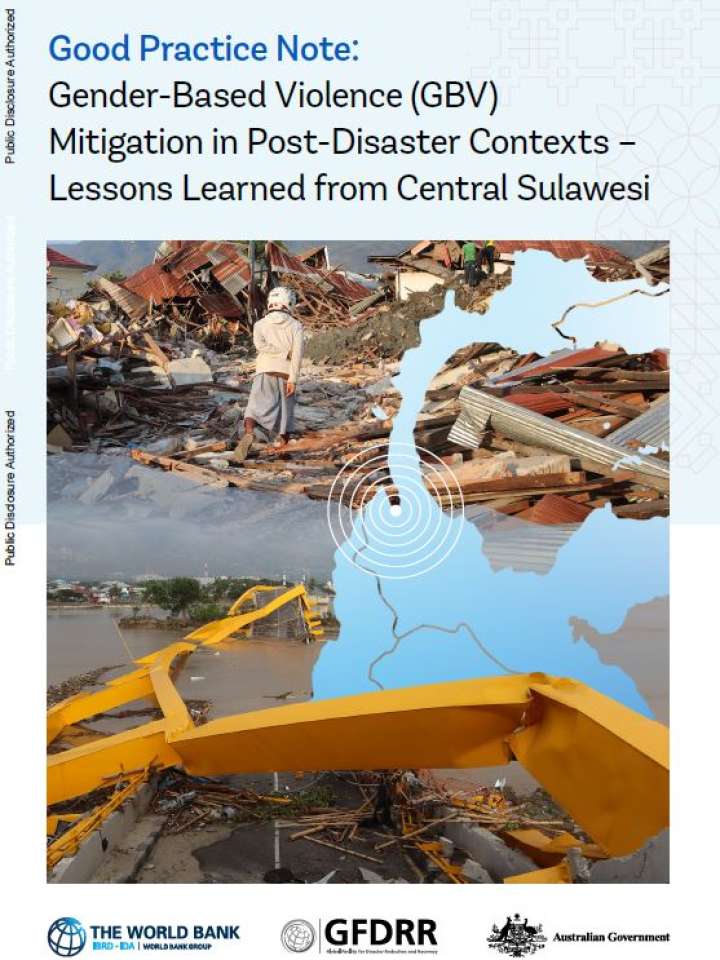Gender-Based Violence (GBV) mitigation in post-disaster contexts - Lessons learned from Central Sulawesi
This note documents good practices to prevent, mitigate, and respond to gender-based violence (GBV) in post-disaster contexts, utilizing the World Bank-financed Central Sulawesi Rehabilitation and Reconstruction Project (CSRRP) as a case study. Women, girls, boys, and men face different levels of exposure and vulnerability to natural hazards, driven by gender dynamics and pre-existing inequalities in society. Women and girls are disproportionately affected by natural disasters across many outcomes, including loss of livelihoods, limited mobility, and lack of access to reproductive health services and sanitation facilities.
In many post-disaster settings, gender-based violence (GBV) is also exacerbated. GBV traumatizes survivors and their families, and undermines the resilience of individuals and societies, making it harder to recover and rebuild. Failure to consider underlying gender inequalities, including GBV drivers and consequences, in the design and implementation of disaster risk management (DRM) programs is likely to render DRM support less effective.
Explore further
